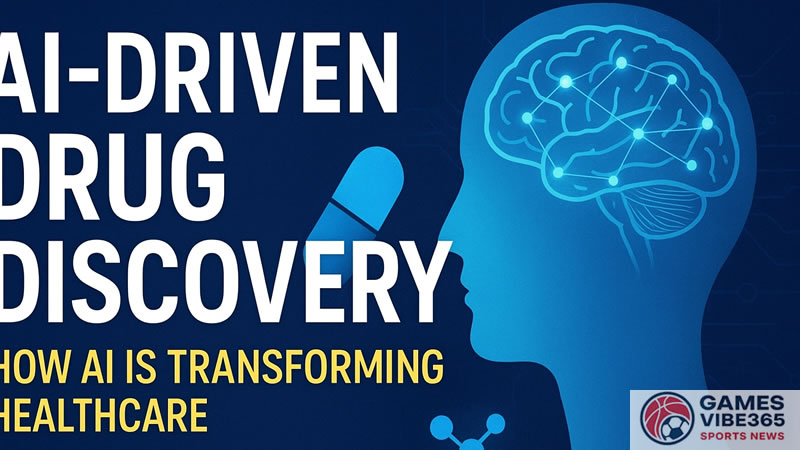
AI-Driven Drug Discovery: The pharmaceutical industry is undergoing a revolution, and at the center of it stands artificial intelligence (AI). What once took years of trial-and-error in laboratories is now being accelerated by algorithms capable of predicting, testing, and even designing new drugs with astonishing speed. As regulators, investors, and research organizations embrace this shift, AI is reshaping the way humanity develops treatments for some of its deadliest diseases.
The Old Model: Why Drug Discovery Was So Slow
Traditionally, drug discovery was one of the most time-consuming and expensive endeavors in science. On average, developing a single new drug cost billions of dollars and took over a decade before reaching the market.
- Preclinical testing involved endless lab experiments and animal trials.
- Clinical trials consumed several years, with high chances of failure.
- Regulatory hurdles slowed down the approval process further.
To make matters worse, nearly 90% of experimental drugs failed somewhere between discovery and final approval, burning resources and leaving patients waiting.
Enter AI: A Game-Changer in Pharma
AI is addressing these challenges head-on by simulating complex biological processes and analyzing vast datasets in ways human researchers simply cannot. Instead of testing thousands of molecules blindly, AI can predict which ones are most likely to succeed.
Some of the most impactful applications include:
- Predictive Modeling: AI can forecast how a drug will interact with the human body, identifying toxicity issues before physical trials.
- Drug Repurposing: Algorithms can scan existing medicines to find new uses—saving time and costs.
- Virtual Screening: AI evaluates millions of compounds in silico (on computers) to find the most promising candidates.
- Clinical Trial Optimization: AI identifies the best patient groups, reducing trial time and increasing success rates.
For example, biotech firm Recursion recently used AI to move a cancer drug from concept to clinical trials in just 18 months—a process that would normally take over 3 years.
FDA’s Push for AI in Drug Development
In the United States, the Food and Drug Administration (FDA) has actively encouraged companies to adopt AI as part of its effort to minimize animal testing. By relying on AI-driven models, researchers can simulate organ responses digitally, cutting down on animal trials while achieving faster, more reliable outcomes.
This regulatory support is a turning point, signaling that AI-driven methods are not just optional, but the future of drug development.
Benefits of AI in Drug Discovery
The adoption of AI comes with several undeniable advantages:
- Speed: AI reduces discovery timelines from years to months.
- Cost Efficiency: Drug development costs can drop by as much as 50%.
- Higher Success Rate: By filtering out weak candidates early, AI increases the chances of approval.
- Personalized Medicine: Algorithms can tailor treatments based on patient genetics, paving the way for precision healthcare.
Challenges on the Horizon
Despite its promise, AI-powered drug discovery is not without obstacles:
- Data Quality: AI models are only as good as the data they’re trained on. Poor-quality or biased data can lead to flawed predictions.
- Transparency: AI is often criticized as a “black box.” Regulators and researchers want clearer explanations of how algorithms make decisions.
- Ethical Concerns: Replacing animal trials is good, but who is accountable if an AI-designed drug fails in humans?
- Accessibility: Smaller companies and developing nations may lack the computational power and resources to fully utilize AI.
Global Race: Who Leads in AI Pharma?
Countries like the United States, China, and the UK are investing heavily in AI-driven pharma research. Startups are also making waves, from DeepMind’s AlphaFold, which predicts protein structures with remarkable accuracy, to smaller biotech firms in Europe and Asia racing to use AI for rare disease treatments.
This is quickly turning into a competitive global industry where those who master AI will dominate the next era of medicine.
Real-Life Impact: What This Means for Patients
The most important outcome of AI-driven drug discovery is its potential impact on human lives:
- Faster development means patients suffering from cancer, Alzheimer’s, or rare genetic diseases may see treatments within years instead of decades.
- Cheaper costs could make life-saving drugs more affordable and accessible worldwide.
- Precision medicine may allow doctors to prescribe drugs tailored to an individual’s DNA, maximizing effectiveness while minimizing side effects.
The Future: AI as a Partner, Not a Replacement
AI won’t replace scientists—it will empower them. Instead of spending years testing dead-end molecules, researchers can focus their expertise on the most promising candidates identified by AI. In this way, artificial intelligence acts as a super-assistant, enhancing human creativity and accelerating breakthroughs.
Looking ahead, AI combined with quantum computing could make drug discovery even faster and more accurate. Imagine a future where designing a treatment for a new virus takes weeks, not years a future that could redefine global healthcare.
Conclusion
AI-driven drug discovery represents one of the most exciting intersections of technology and medicine in modern history. By cutting costs, saving time, and reducing failure rates, AI is rewriting the rules of pharmaceutical research. While challenges around ethics, transparency, and accessibility remain, the progress made so far is proof that the era of AI in healthcare is no longer a vision—it is already here.
As patients and healthcare systems brace for the next wave of innovation, one thing is clear: artificial intelligence isn’t just helping us discover drugs faster it’s giving humanity a fighting chance against diseases once thought unbeatable.









